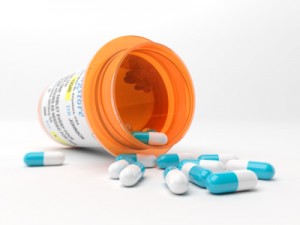Types of Drug & Alcohol Addiction Treatment
Treatment for drug or alcohol addiction typically falls into one of two categories: pharmacotherapies or behavioral therapies. Typically, pharmacotherapies are used to treat addiction to alcohol or opioids while behavioral therapies are commonly used to treat all types of drug or alcohol addiction. Pharmacotherapy utilizes medication during the treatment process whereas behavioral therapies utilize a method of changing behaviors to help in the recovery process.
Pharmacotherapies for Drug and Alcohol Addiction Treatment

Finding drug and alcohol addiction treatment doesn’t have to be impossible.
Various pharmacotherapies exist for the treatment of addiction to drugs or alcohol. The two most common substances treated using pharmacotherapies include opioids and alcohol. Medications are utilized during the treatment of addiction when a pharmacotherapy method is used.
Most often, opioid addiction is treated using methadone, buprenorphine, Naltrexone, or a combination medication such as Suboxone which uses both buprenorphine and Naltrexone. Opioid addiction is often treated using a combination of pharmacotherapy paired with behavioral treatment for the best results. When methadone is used to treat opioid addiction, the resulting treatment is called methadone maintenance. Regardless of the medication that is used, pharmacotherapies are best when paired with appropriate behavioral treatments and counseling.
Another common use for pharmacotherapy is for the treatment of alcohol addiction. Various medications are often used to help curb cravings for alcohol including: Naltrexone, Acamprosate, Disulfiram, and Topiramate. Each of these medications again are best when combined with appropriate behavioral treatment to provide the best possible chance for a successful recovery from alcohol addiction.
Behavioral Therapies for Drug and Alcohol Addiction Treatment
Behavioral therapies help people to take a proactive role in their addiction treatment by providing them with various incentives that help them to stay away from drugs and alcohol, modify their behaviors and build on the skills necessary to effectively handle stressful circumstances without the use of drugs or alcohol. Various behavioral treatments or therapies exist to assist in the recovery from drug or alcohol addiction including:
- Cognitive Behavioral Therapy
- Community Reinforcement
- Contingency Management Interventions
- Motivational Enhancement
- The Matrix Model
- 12 Step Programs
- Behavioral Couples Therapy
- Behavioral Treatment for Adolescents
Each of these treatments can be effectively used to help change behaviors and elicit recovery from addiction through positive reinforcement and education. Below is a look at which type of drug or alcohol addiction each type of treatment is most effective for:
- Cognitive Behavioral Therapy (CBT) is most effective at treating alcohol addiction, marijuana addiction, cocaine addiction and methamphetamine addiction.
- Community Reinforcement utilizing vouches is most effective at treating addiction to alcohol or cocaine.
- Contingency management interventions and motivational incentives work well at treating alcohol addiction, stimulant addiction, opioid addiction, and marijuana addiction.
- Motivational Enhancement therapy is an effective form of behavioral treatment for alcohol addiction and marijuana addiction.
- The Matrix Model is an effective treatment for stimulant addiction.
- 12 Step Programs are effectively used to treat addiction to alcohol, stimulants and opiates.
- Behavioral Couples Therapy is reserved for married couples who suffer from various addictions.
- Behavioral treatment for adolescents focuses on providing effective behavioral treatment for children and teens suffering from various types of drug or alcohol addiction.
